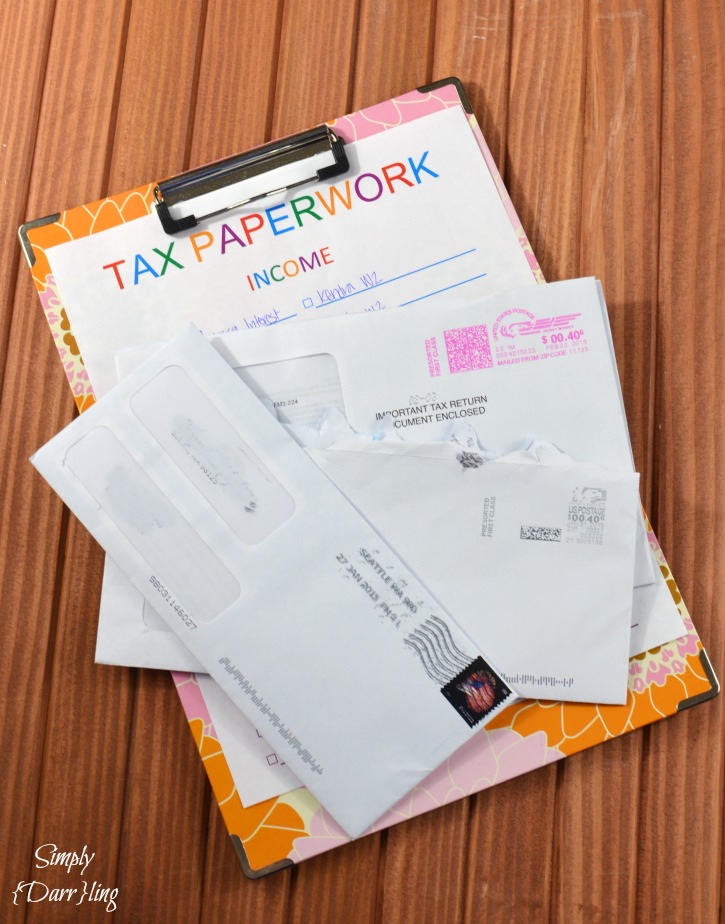Essential Tax Paperwork Every Contractor Needs

As a contractor, navigating the maze of tax responsibilities can often seem daunting. The freelance lifestyle offers flexibility and freedom, but it also requires meticulous documentation and adherence to tax laws. Ensuring you have the right paperwork in place not only simplifies the filing process but also helps in claiming legitimate deductions, reducing your tax liability, and staying compliant with IRS regulations. Here, we'll delve into the essential tax documents every contractor should know about, how to manage them effectively, and address some common FAQs to clarify any lingering doubts.
Key Documents for Contractors

Here are the critical pieces of paperwork you need to keep your tax records in order:
- W-9 Form: If you're self-employed or an independent contractor, the IRS requires you to fill out this form before any income is paid to you by a client or a business. It provides your name, address, and Social Security or Tax ID number.
- 1099-NEC: This form replaced the 1099-MISC for reporting nonemployee compensation. It's issued by your clients to report the amount they paid you if you were paid over $600 during the tax year.
- Income Records: Keep records of all payments received from clients, including copies of invoices, deposit slips, and bank statements, to corroborate your income.
- Receipts for Business Expenses: To claim deductions, contractors need to keep receipts for any business-related expenses. This includes travel, office supplies, equipment, utilities, rent for a workspace, and more.
- Vehicle Use Log: If you use your car for business purposes, maintain a logbook to track mileage, gas, maintenance, and related expenses.
- Home Office Deduction Documentation: If you work from home, you need documentation supporting the business use of your home, including utility bills, rent or mortgage statements, and home improvement expenses.
- Healthcare Insurance: Documentation related to health insurance, especially if you're paying for premiums out-of-pocket, as this can be tax-deductible.
Managing Your Tax Documents

Effective tax management involves several steps:
- Regular Tracking: Keep a daily log or use an app to track expenses as they occur. This reduces the chance of missing out on any deductible expenses.
- Organize Documents: Use digital tools or physical folders to categorize receipts and documents by month or type of expense.
- Digital Copies: Scan your documents to keep a digital record. Cloud storage solutions can be beneficial for backups and accessibility.
- Stay Informed: Tax laws change, and so do your circumstances. Stay updated on current laws and keep in contact with a tax professional for advice tailored to your situation.
💡 Note: Always retain tax documents for at least three years, as the IRS has up to three years from the filing date to audit your tax return.
Filing Your Taxes

When tax season arrives, here’s what you should do:
- Collect All Documentation: Gather all your income records, 1099-NEC forms, expense receipts, and other tax-related documents.
- Complete Form Schedule C: This IRS form is where you report your business income and calculate your profit or loss. Ensure all figures align with your records.
- Report Payments Made: If you've made quarterly estimated tax payments, report these on Form 1040-ES.
- Claim Deductions: Report all valid business expenses, including home office, health insurance, and vehicle expenses, on Schedule C.
- E-file or Paper File: You can choose to e-file your taxes, which can expedite the processing time, or opt for traditional paper filing if you prefer.
In Summation

Navigating taxes as a contractor involves meticulous documentation and adherence to ever-evolving tax laws. This post outlined the essential tax paperwork you need to keep in order to file taxes accurately and efficiently. From the W-9 form to carefully maintaining records of your business expenses, the keys to reducing your tax burden while staying compliant with the IRS are within your reach. By implementing a system to manage your documents effectively and staying informed on tax regulations, you’ll be well-equipped to handle the complexities of freelance taxation. Remember, good organization now leads to savings and peace of mind come tax season.
Do I need to keep receipts for all my business expenses?

+
Yes, keeping receipts is crucial for documenting your business expenses. These receipts provide proof of your expenditures, which you can use to claim deductions on your tax return.
Can I file my taxes electronically if I’m a contractor?

+
Absolutely, contractors can file their taxes electronically, which often speeds up the process and reduces the risk of errors. E-filing platforms can guide you through the relevant forms like Schedule C.
What if I miss a 1099-NEC form from a client?

+
If you don’t receive a 1099-NEC form from a client who should have issued one, contact them first. If that doesn’t resolve the issue, you should still report the income on your tax return based on your records. Keep records of all attempts to correct the matter in case of an audit.